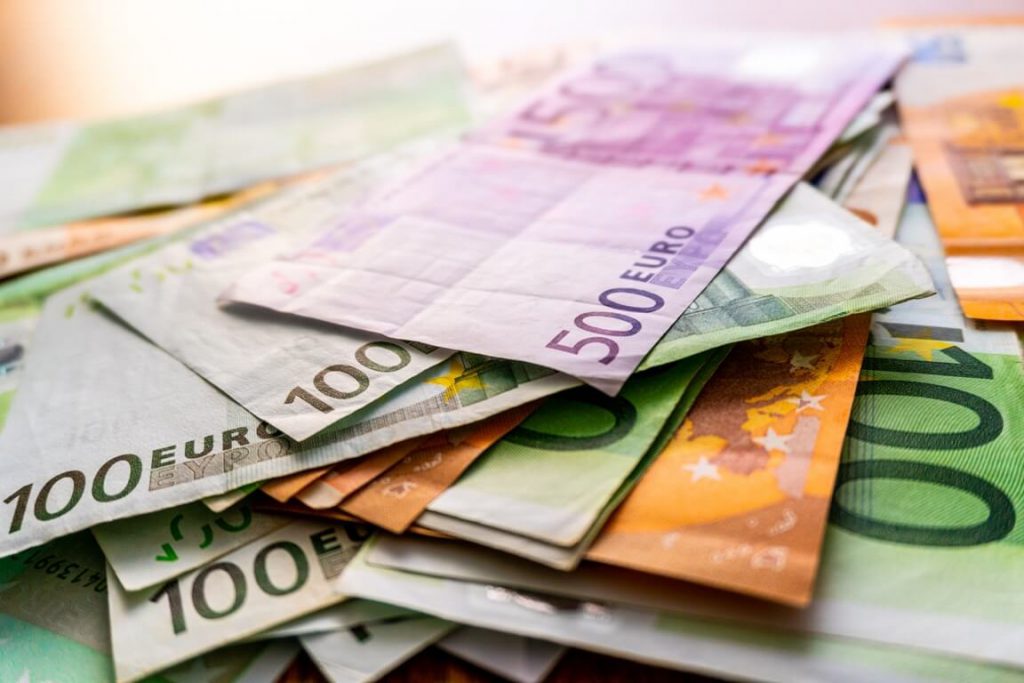
Euro and Swiss franc fell. What about the Japanese Yen?
The euro tumbled by 0.4% to $0.97500 on Friday. The Swiss franc also shaved off as much as 1%. The currency plunged to a more than three-year low of 1.01230 francs per USD. The Swiss National Bank drew more than $11 billion from the Fed’s currency swap line facility this week. Overall, 17 parties participated in its dollar auction. According to analysts, that suggests the dollar demand is strong.
Meanwhile, the British Pound continued struggling. The sterling dropped by more than 1%, hitting a weekly low of $1.11 on Friday. Britain’s ruling Conservative party is trying to ascertain who will become the U.K.’s third prime minister in two months after Liz Truss quit the post on Thursday. At first, the currency had soared by 1% after this news, but it quickly changed direction and ended in the red again.
They currently hold a big majority in parliament. As a result, they won’t have to call a nationwide election for another two years. Instead, Conservatives will elect a new leader by October 28. Thus far, former finance minister Rishi Sunak and Boris Johnson are the frontrunners.
On Friday, the dollar index surged forward by 0.5% to 113.440 against the basket of six major currencies as U.S. Treasury yields skyrocketed to a new multi-year high. On the other hand, the Japanese yen remained on track for its 10th consecutive weekly decrease versus the U.S. currency today. The USD/JPY pair is very sensitive to changes in U.S. 10-year yields. The latter’s increase usually results in the Yen’s fall.
How is the Japanese currency faring now?
The Yen exchanged hands at 151.450 per greenback, at last, plummeting by 0.9% on the day. Markets became worried after the extended yen sell-off pushed the currency past 150 yen per USD on Thursday. The Yen hit 32-year lows versus the dollar.
On Friday, Japanese finance minister Shunichi Suzuki stated that the government was dealing with currency speculators strictly. Moreover, Bank of Japan governor Haruhiko Kuroda announced that the central bank would closely observe the impact of currency moves.
Meantime, traders contemplated whether the U.S. Federal Reserve would hike its interest rates as high as 5% by next year. Such expectations bolstered the greenback. But the strong dollar sent the EM currencies in the red. The latter were set for their second consecutive weekly loss today. Regional stocks also plummeted for a third straight session.
The MSCI’s index for EM currencies dropped by 0.3%, while stocks declined by 0.5%. However, central and eastern European currencies managed to retain some gains, unlike many of their EM peers. For instance, the Hungarian forint climbed up by 1.1% this week against the common currency.
Per Hammarlund, the chief EM Strategist at SEB noted that the market sentiment changed after Hungary’s central bank raised rates. The bank also seems determined to rein in the weakness of the forint as it’s one of the main sources of soaring inflation in the country. As a result, the central bank hinted that it might not increase the monetary policy rate further. However, it will continue tightening the monetary conditions through other means to stabilize its currency.
What about the other EM currencies?
The Polish zloty tumbled down by 0.1% today. September retail sales data missed analysts’ estimates, pushing the currency lower. China’s yuan also dropped against the greenback, while its blue-chip CSI 300 Index shaved off 0.3%, suffering its worst week in over a month. The country’s property shares surged forward after state media reported that the government would ease share financing rules for certain real estate-related companies. That bolstered hopes of more measures to help the struggling sector.
On Friday, the South African rand also fell by 0.5% against the dollar. It seemed set to end the week a bit lower after economic data came out mixed this week. In September, inflation slowed, as economists expected. However, August’s retail sales missed expectations.
Moreover, the Russian rouble exchanged hands near 61 to the greenback. The Turkish lira was also weaker today. It plunged to a record low in the previous session after the central bank had delivered a 150 basis point interest rate cut. According to official data, the consumer confidence index in Turkey soared by 5.3% to 76.2 points this month. It continues to rebound from a record low of 63.4 reached in June despite skyrocketing inflation.


